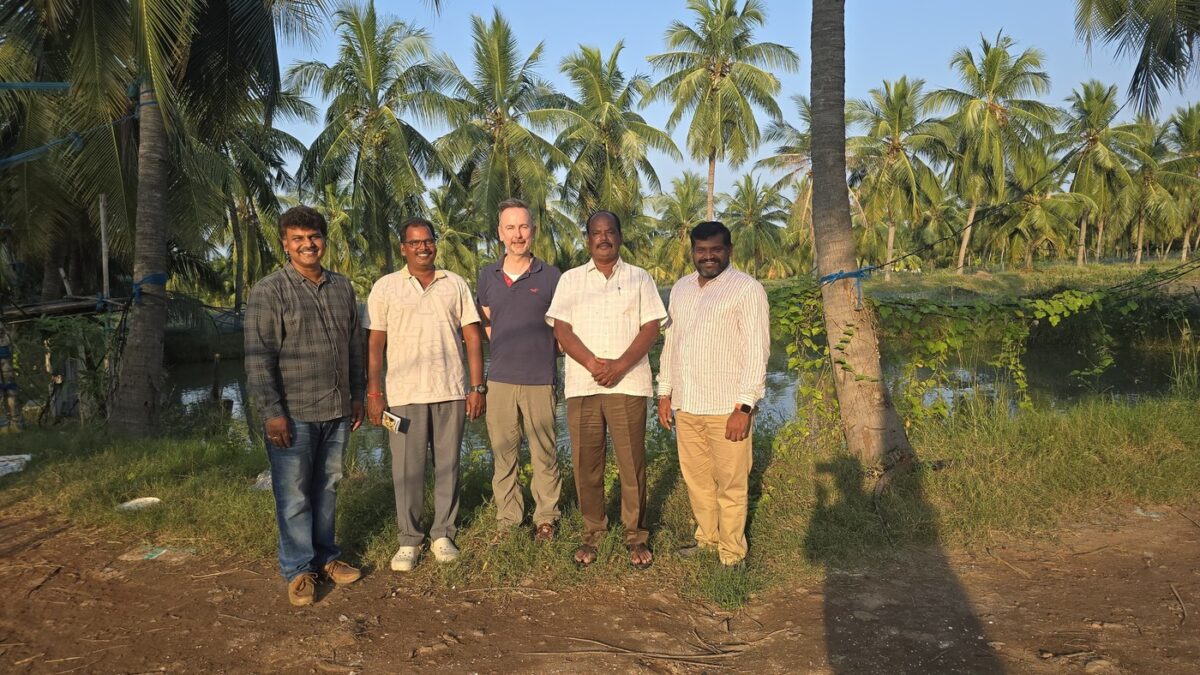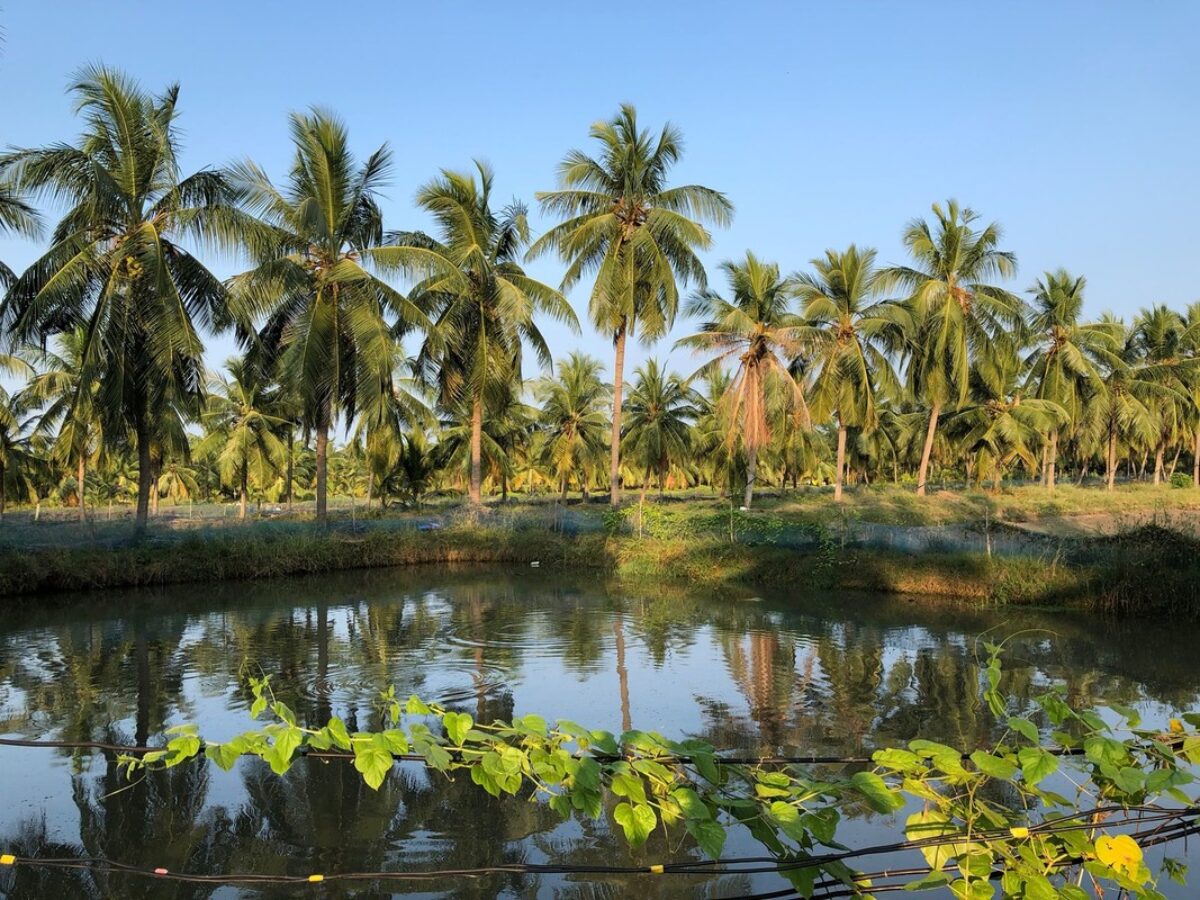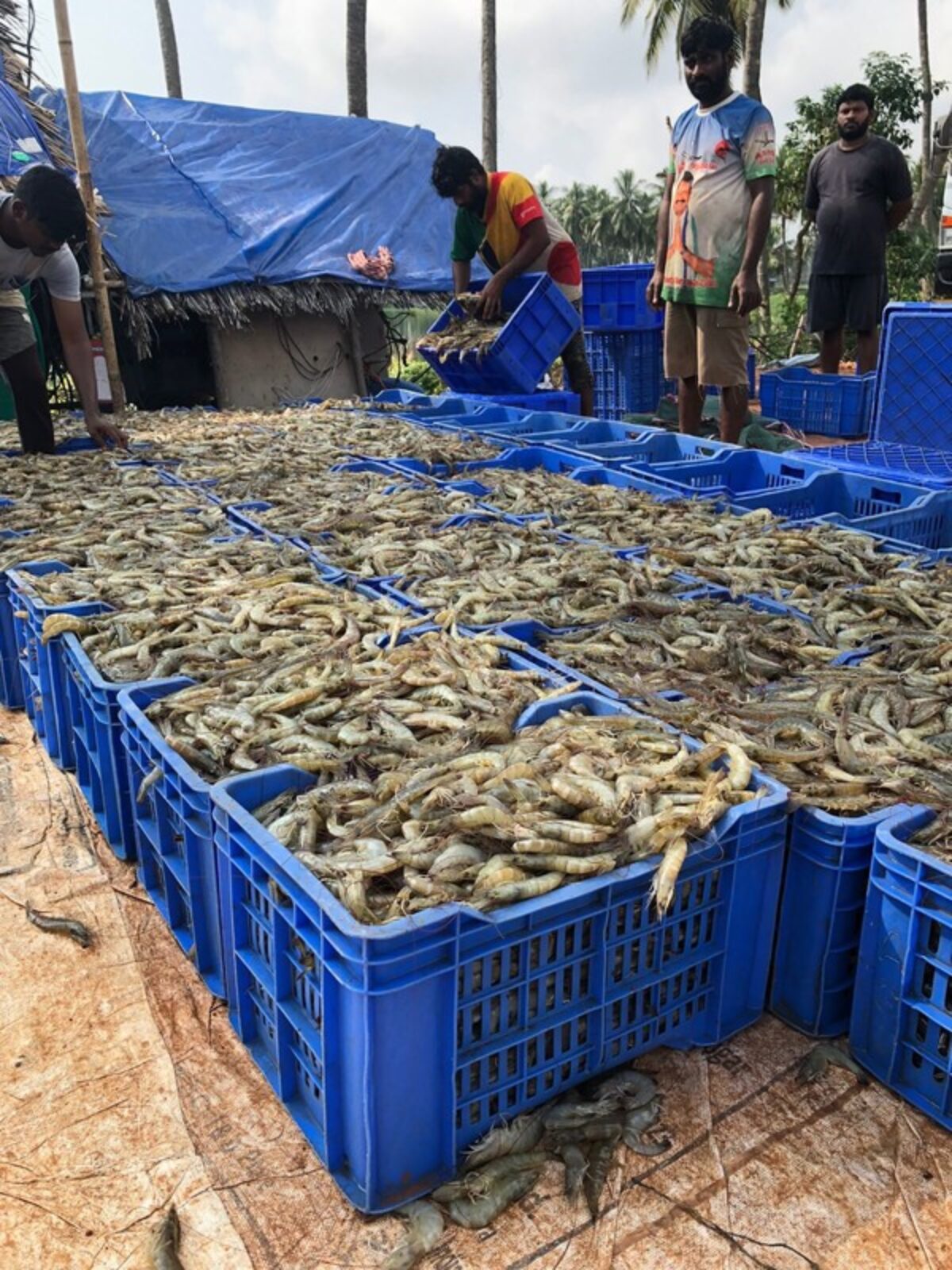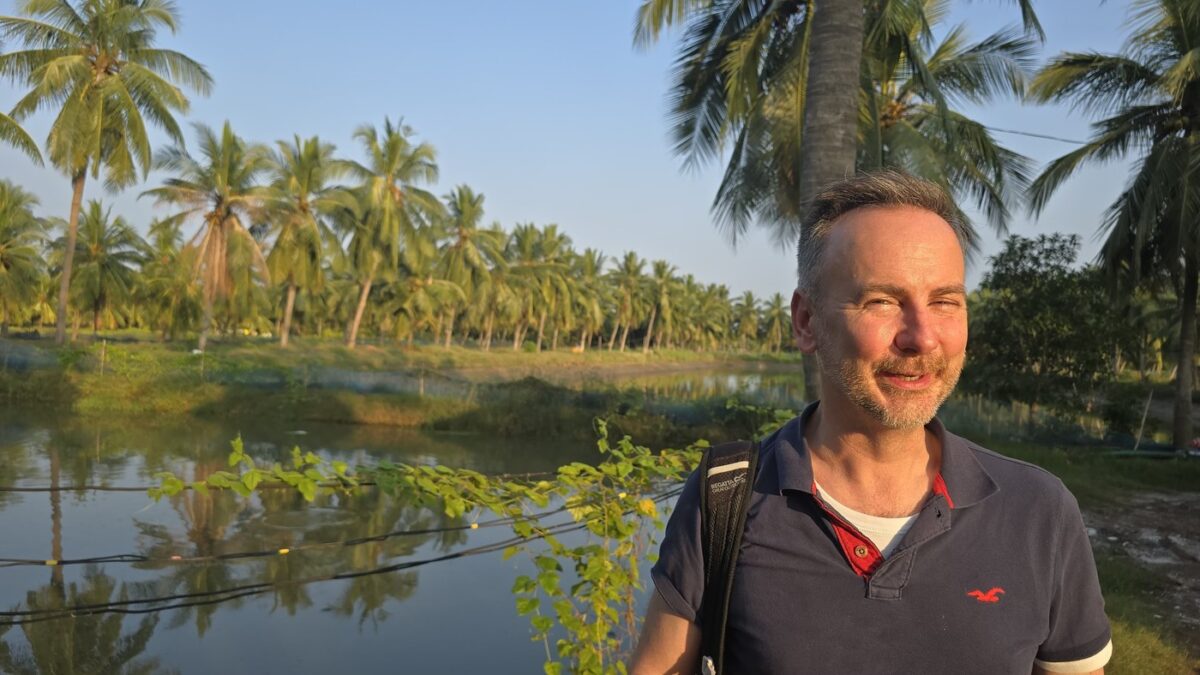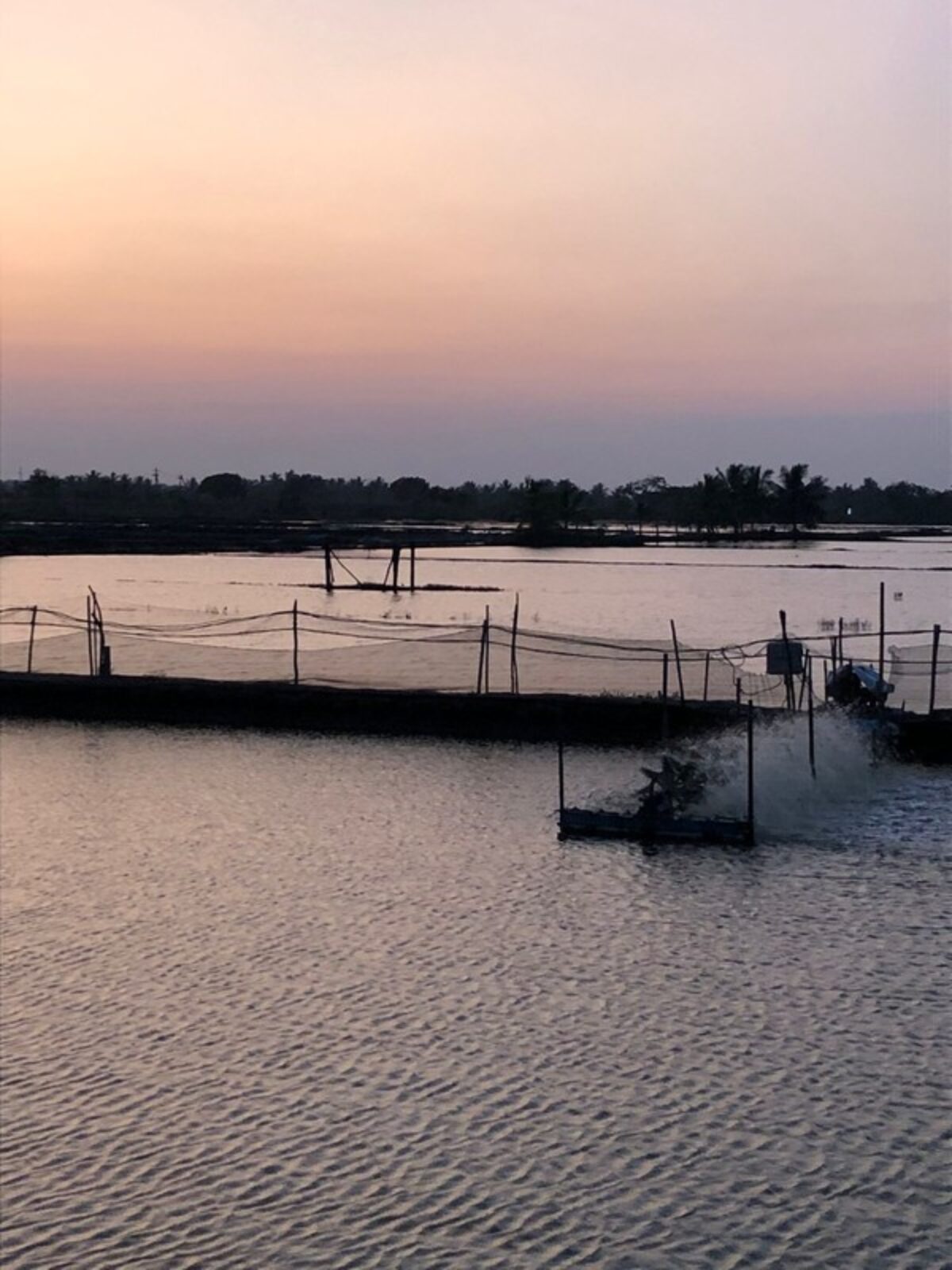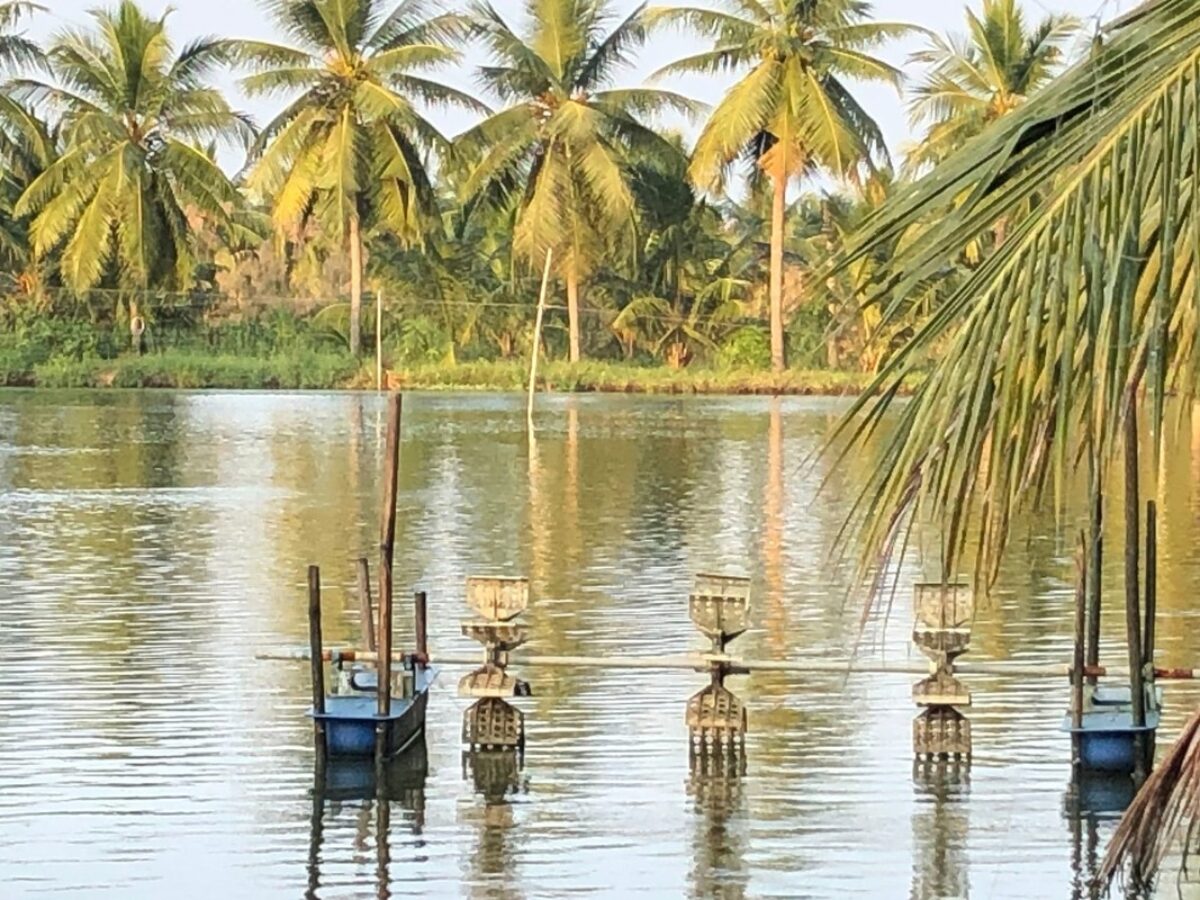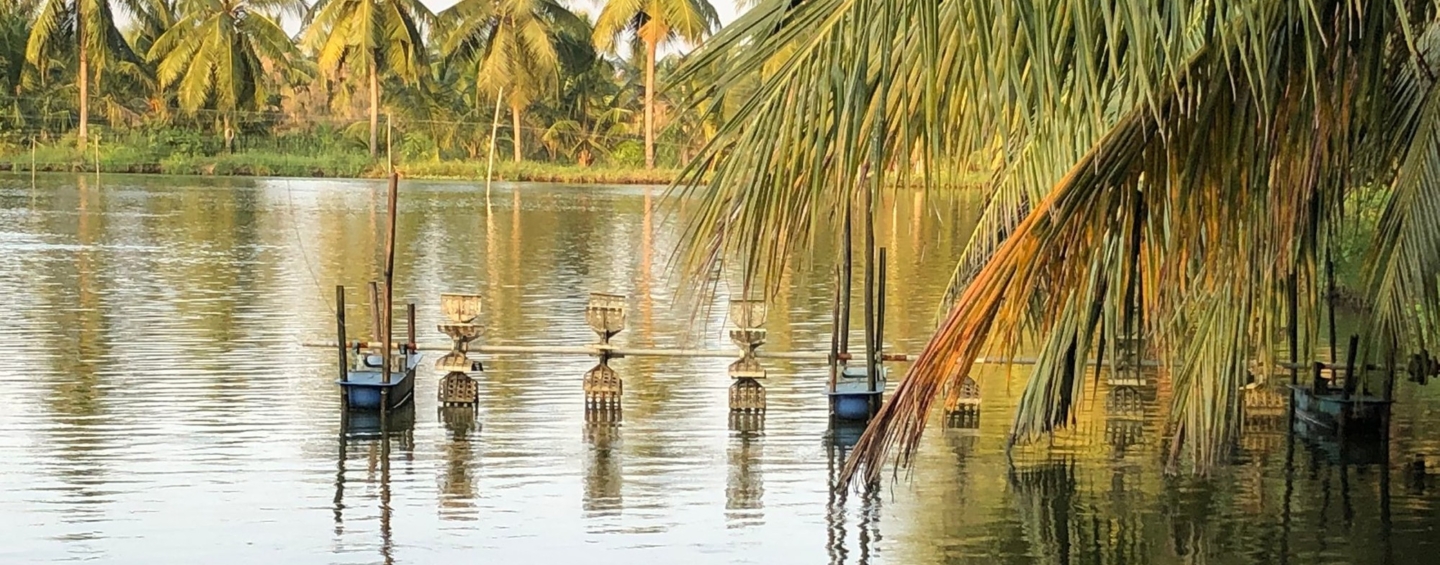I recently visited India as part of our exploration of how to develop a foundation or model for landscape-level improvements in aquaculture – one that can be applied globally.
I hope the photos that accompany this blog give you a sense of the landscape in which shrimp farming is embedded. But you’re not here for a travel blog – you’re here to find out about our aquaculture project in India.
Developing a process
Using shrimp production in the Indian state of Andhra Pradesh as a case study, with support from Mohan and Ravi at Seafood Solutions, the project had already completed questionnaires and a workshop on key sustainability issues affecting farmers in India’s main shrimp-producing region. Maps highlighting shrimp production hotspots in the state complemented this work.
Although 100-year floods had prevented my attendance at the September workshop, this setback led to an opportunity to visit the region in December and delve deeper into key issues, validate earlier findings, and advance the project by identifying improvement ideas – in summary ground-truthing the earlier findings and moving this process-orientated project forward.
As a predominantly desk-based analyst, this was a valuable opportunity to bridge online information with on-the-ground realities and engage directly with the stakeholders and initiatives I had only read about.
Key Findings
During a busy week, and with invaluable support from Seafood Solutions, I met many shrimp aquaculture stakeholders, including processors, hatcheries, farmers, suppliers, and small-scale farm group leaders. Covering Andhra Pradesh meant extensive travel across target districts like East and West Godavari, Krishna, and Kakinada.
I learned many things about shrimp farming in Andhra Pradesh during my visit that will help us moving forward. Some thoughts:
- Economic Challenges: Input costs and static farm-gate prices often surfaced as primary concerns. Addressing these can lead to significant financial improvements.
- Operational Efficiency: Issues like disease, seed quality, and production management require specific attention to enhance productivity and sustainability.
- Communication: Strengthening information exchange among stakeholders fosters better decision making and innovation.
- Collaboration: Shrimp farm groups and formal society formation is active and institutionalized under MPEDA’s National Centre for Sustainable Aquaculture (NaCSA) – which as its acronym suggests has a history and connection to the Network of Aquaculture Centres in Asia Pacific (NACA), where I worked in the early 2000s.
I also drew some interesting process-orientated conclusions, including:
- Prioritize key issues during ground-truthing by concentrating on a select number of high-impact issues, which allows for deeper analysis and more effective interventions.
- Build continuity and trust in stakeholder engagement by returning to stakeholders engaged in earlier project stages – using the same project team to achieve this.
- Pay close attention to the nuances and variations in language, especially when interpreting terms and phrases.
- Include an economic analysis in landscape approaches to identify potential financial incentives for farmers.
Following the principle that a picture paints a thousand words, here are just a few of the photos from my visit to Andhra Pradesh – thanks again to Seafood Solutions. I hope these will give you a taste of my experience and encourage you to visit India yourself.
